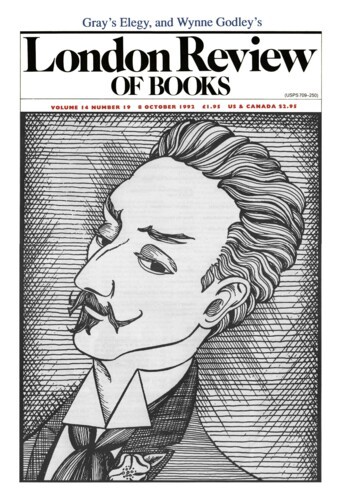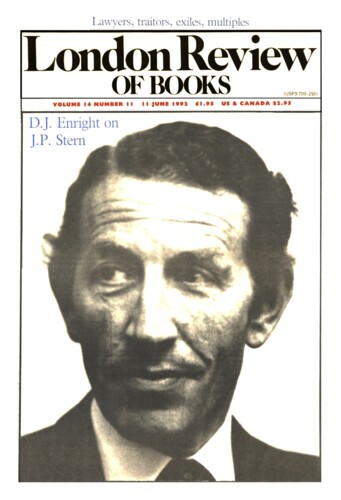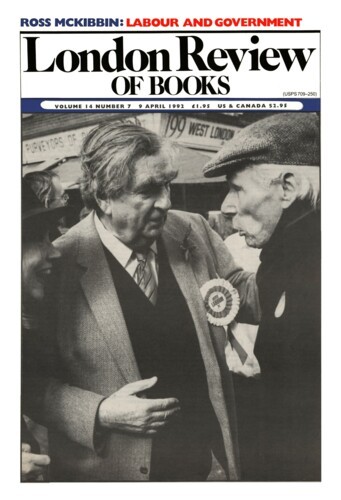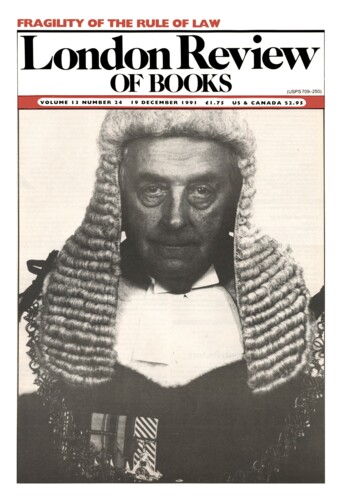Stuck in the slot
D.J. Enright, 8 October 1992
One of John McGahern’s stories begins thus: ‘There are times when we see the small events we look forward to – a visit, a wedding, a new day – as having no existence but in the expectation. They are to be, they will happen, and before they do they almost are not: minute replicas of the expectation that we call the rest of our life.’ The story ends: ‘I was free in the Sligo morning. I could do as I pleased. There were all sorts of wonderful impossibilities in sight. The real difficulty was that the day was fast falling into its own night.’ In between, nothing happens (the girl doesn’t want the narrator ‘the way some people cannot eat shellfish or certain meats’), albeit the opening sentence is, not wholly unexpectedly, borne out.’





